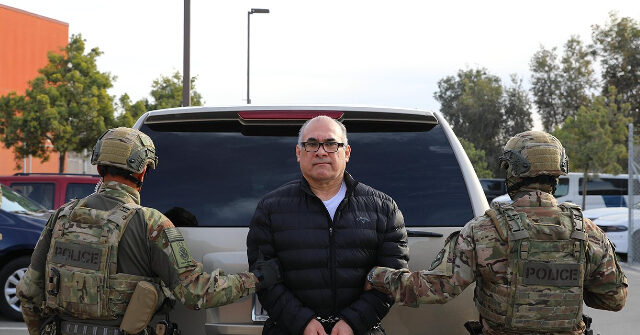Osiel Cardenas Guillen, the former supreme leader of the Gulf Cartel and founder of the notorious Los Zetas, has been deported from the United States to Mexico after completing his prison sentence. U.S. Immigration and Customs Enforcement (ICE) facilitated the deportation, which occurred at the San Diego Port of Entry. Following his removal from U.S. custody, Cardenas was handed over to Mexican authorities, who subsequently took him into custody. He now faces a multitude of serious charges in Mexico, including drug trafficking, murder, and organized crime.
Cardenas, a figure synonymous with drug-related violence and crime in Mexico, rose to power in the late 1990s. His ascent was marked by brutal tactics, including murder, and he solidified his influence by forming alliances with former military and police personnel, who became his guards and enforcers within Los Zetas. This organization is infamous for its ruthlessness and has made a significant impact on drug trafficking operations throughout Mexico. The U.S. Department of Justice indicted Cardenas on drug trafficking-related charges in 2000, which led to his eventual capture by Mexican military forces in 2003 after a violent confrontation in Matamoros.
Following his arrest, Cardenas was extradited to the United States in 2007, where he faced several drug trafficking and money laundering charges. In 2010, he entered a guilty plea in a secret deal, resulting in a 25-year prison sentence. During his incarceration, Cardenas became a focal point of law enforcement concerns, as many speculated about the potential resurgence of his influence in the drug trade. After completing a substantial portion of his sentence, the U.S. prepared for his deportation back to Mexico due to an extradition request linked to the charges he faces there.
The process of Cardenas’s removal raised significant media attention and speculation, particularly in Mexico. Reports circulated about possible scenarios regarding his return to criminal activities or a resurgence in power. ICE concluded that Cardenas could be handed over to Mexican authorities due to the pending charges against him and the completion of his sentence in the U.S., heightening interest in his future and the implications for Mexico’s ongoing struggles against drug cartels.
Upon his arrival in Mexico, the Attorney General’s Office confirmed that Cardenas had been transported to the Altiplano prison, where he is expected to stand trial concerning a range of charges. His potential retrial in Mexico represents another chapter in his complex criminal saga and reflects the larger narrative of the ongoing battle against organized crime and drug trafficking in the region. The challenges posed by figures like Cardenas highlight the intricate relationship between crime and law enforcement in both the U.S. and Mexico.
Journalistic commentary from sources like Breitbart Texas provides insight into Cardenas’s influential role in drug trafficking and organized crime. The coverage highlights not only the immediate implications of his deportation but also the long-term effects on the drug trade and cartel dynamics in Mexico. As authorities prepare for the legal proceedings to unfold, the focus remains on understanding how Cardenas’s past actions may continue to impact the current landscape of organized crime in the country, suggesting that his story is far from over.

